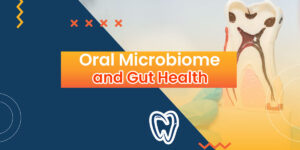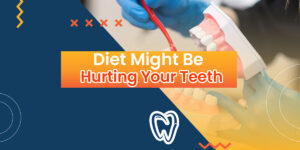Oral health is a fundamental part of overall well-being, and its importance only increases as we age. Over time, our teeth and gums become more susceptible to a range of issues — from cavities and sensitivity to gum disease and tooth loss. However, with consistent and proper care, many of these problems can be prevented, allowing us to maintain a healthy, confident smile well into later life. Below is a detailed guide to protecting your dental health at every stage of life.
1. The Essentials: Proper Brushing and Flossing
Regardless of age, the foundation of oral health is good hygiene. That includes:
- Brushing your teeth twice daily, ideally in the morning and before bed, for at least two minutes each time.
- Using a fluoride toothpaste to help strengthen enamel and prevent decay.
- Flossing or using interdental brushes at least once a day to remove plaque and food particles between the teeth.
For older adults with mobility or cognitive challenges, electric toothbrushes, easy-grip handles, or caregiver assistance can be valuable tools in maintaining hygiene.
2. Routine Dental Visits: Prevention is the Best Medicine
Regular dental check-ups allow for the early detection of problems before they escalate. While a visit every six months is the general recommendation, your dentist may suggest a different schedule depending on your oral health needs.
These visits include more than just checking your teeth — your dentist will assess your gums, tongue, jaw, and overall oral tissue, helping detect potential signs of systemic diseases like diabetes, osteoporosis, or oral cancer.
3. A Diet That Supports Oral Health
What we eat significantly affects our dental well-being. Sugary and refined carbohydrate-rich foods promote the growth of bacteria that cause cavities and gum inflammation. Instead, aim for:
- Calcium and vitamin D-rich foods – milk, cheese, yogurt, almonds, leafy greens.
- Crunchy fruits and vegetables – apples, carrots, and celery naturally clean the teeth and stimulate saliva production.
- Plenty of water – helps rinse away food particles and maintains moisture in the mouth for natural protection.

4. Healthy Lifestyle Choices: Quit Smoking and Limit Alcohol
Smoking dramatically increases the risk of gum disease, bad breath, tooth discoloration, tooth loss, and even oral cancer. Quitting smoking can bring immediate and long-term benefits for your oral and overall health.
Likewise, excessive alcohol use can dry out the mouth, damage oral tissues, and increase the risk of tooth decay and oral cancer. Moderation, along with good hygiene, is essential.
5. Advanced Dental Treatments: When Restoration is Needed
As we age, some teeth may become worn, damaged, or lost. Thankfully, modern dentistry offers solutions such as:
- Dental implants – a permanent and natural-looking solution for missing teeth.
- Bridges and dentures – restore function and aesthetics.
- Crowns and veneers – repair and protect damaged or unsightly teeth.
Working closely with your dentist ensures that you get personalized treatment to maintain both function and confidence in your smile.
6. Oral Health and Chronic Illness
Systemic conditions such as diabetes, heart disease, and osteoporosis can directly impact your oral health. Proper management of these conditions, along with routine dental care, helps reduce risks like gum infection and tooth loss.
A Lifetime of Smiles
Oral health is more than just a cosmetic concern — it’s a key part of your overall health and quality of life. Through consistent hygiene habits, a nutritious diet, regular dental visits, and a healthy lifestyle, you can enjoy strong, healthy teeth and gums at every age.
Remember: good health starts in the mouth. Invest in your smile today so you can carry it with pride tomorrow.




